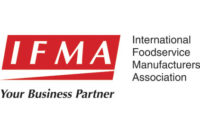World Issues: Impact New Product

1. Bioterrorism. In June 2002, Congress passed the Public Health Security and Bioterrorism Preparedness and Response Act of 2002 (“The Bioterrorism Act”). On January 29, 2003, FDA issued proposed regulations totaling 256 pages detailing new requirements for the registration of all food and supplement manufacturers, distributors and packers as well as rules governing prior notification of food and supplement shipments coming into the U.S. These rules, while clearly intended to help reduce bioterror risks to the food supply, will likely have a dramatic and long-term effect on the ability to source and import new ingredients from overseas. The procurement and planning processes for new products must now take these new regulations into account or risk missing delivery deadlines and detention of goods at U.S. ports, all of which would wreak havoc on an otherwise exciting new product launch.
2. Proposition 65. Proposition 65 really means 65 ways to ruin your new product launch in California. With increased imports of foreign raw materials, there has been a parallel increase in litigation, “bounty hunter” lawsuits, and state action taken against foods and dietary supplements which contain ingredients thought to violate Prop. 65 limits (such as heavy metals). Increased vigilance in selection and analysis of raw materials must be Standard Operating Procedure (SOP) for all companies. Thoughtful consideration must be given in the early planning stages to determine if certain raw materials present inherent compliance problems with Prop. 65 and, if so, to find substitute ingredients to minimize the unwanted and unpleasant experience that only those who have been sued under Proposition 65 can appreciate.
3. FTC's Weight Loss Campaign. The Federal Trade Commission (FTC) has launched a major initiative to crack down on false and misleading claims with respect to weight loss products. The growing problem of juvenile and adult obesity has led to a plethora of both food and supplement products offering to help us “burn fat while we sit in traffic” (often they are composed of berries, fish parts and other oddities.) As more and more food and supplement products focus on features and benefits to promote weight loss, a very careful review of the safety and substantiation for the ingredients driving such claims must be undertaken. The sudden contraction of the ephedra weight loss sector will no doubt be followed by an expansion of weight loss products containing xanthine alkaloids of all types, which will likely present a new set of safety questions and potential liability at all levels. The total “caffeine load” of products should be carefully considered in light of new scrutiny this category will receive from both
FTC and FDA.

While the exciting ideas for tomorrow's products will be developed behind closed doors, those responsible for tomorrow's successes must be aware of today's big issues.
Website Resources
www.nutrasolutions.com — Daily supplement and functional food news itemswww.ldigroup.com — Loren Israelsen's company website
www.npicenter.com/regulatory.asp — Natural Products Industry website
/www.fda.gov/opacom/hpnews.html — FDA press releases and talk papers
Looking for a reprint of this article?
From high-res PDFs to custom plaques, order your copy today!



